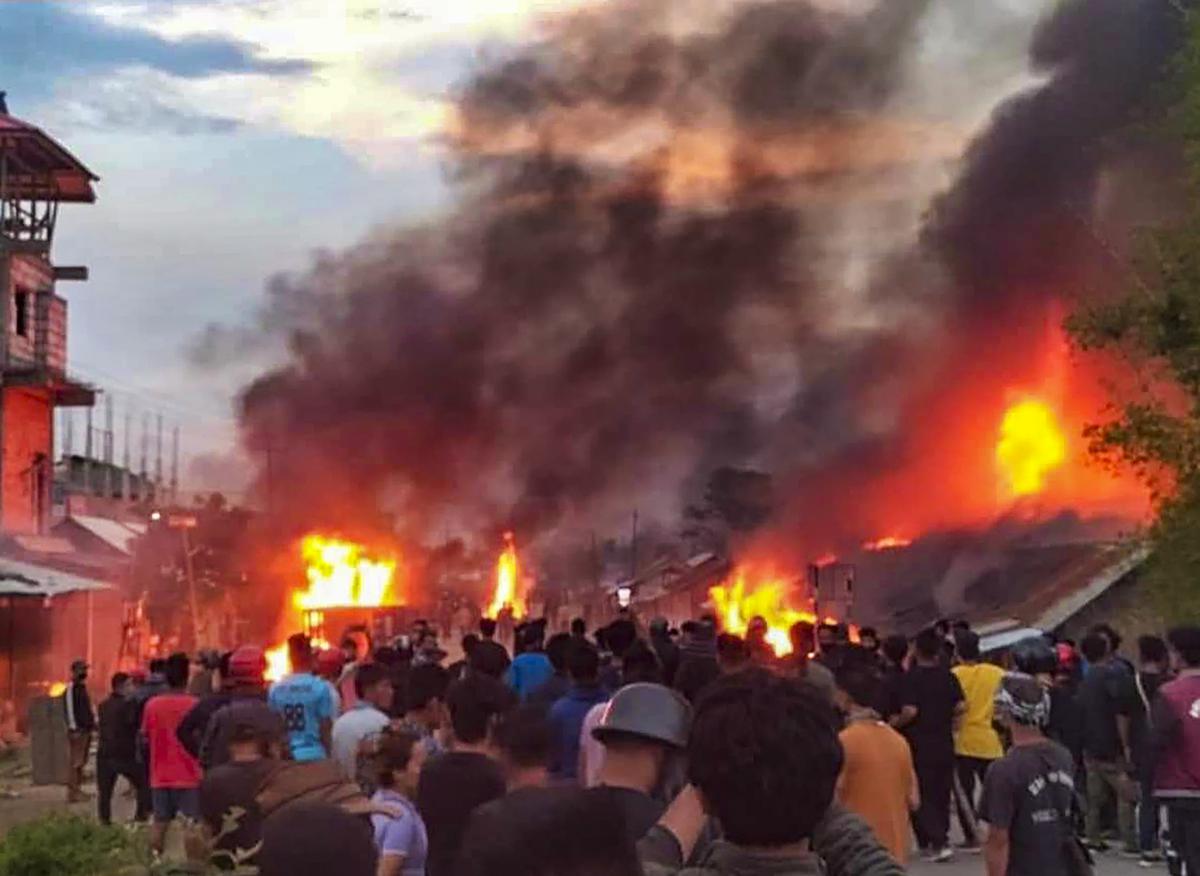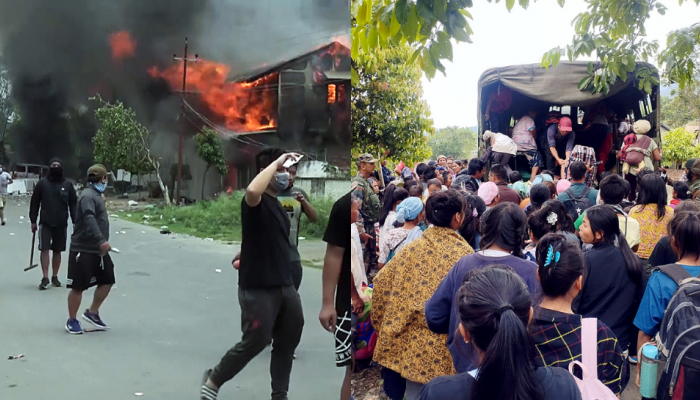State Intensifies Security Measures Amid Rising Ethnic Tensions and Cross-Border Threats In Manipur
Manipur, a northeastern state in India, has been placed on high alert due to intelligence reports indicating that approximately 900 suspected Kuki militants have crossed into the state from neighboring Myanmar. This revelation has raised significant concerns in a region already grappling with ethnic tensions, and authorities are taking swift action to manage the situation.

Kuldiep Singh, the security advisor for Manipur, addressed the media on the matter, revealing that the intelligence reports have been shared with various agencies to coordinate efforts in handling this potential security threat. According to Singh, border police have been alerted and security forces are conducting intensive combing operations in the region. In particular, the hill districts of Manipur, where the Kuki people primarily reside, are being subjected to increased surveillance.

The Kuki people, who are native to the southern parts of Manipur, share ethnic ties with the Chin tribe in Myanmar. These cross-border connections have long been a point of contention, especially after the 2021 military coup in Myanmar, which caused significant displacement of people, including refugees fleeing to India. This latest development of suspected militant infiltration is likely to exacerbate the already fragile situation in Manipur.
The state of Manipur has been experiencing violent clashes since May 2023, rooted in disputes between the majority Meitei community and the minority Kuki tribes. At the core of this conflict are disputes over economic benefits, government quotas, and access to resources, with both communities vying for a greater share of these advantages. The tension has escalated into deadly violence, and recent reports suggest that explosive attacks carried out by drones, allegedly by Kuki militants, have further intensified the unrest.

While Kuki representatives have denied any involvement in these drone attacks, the accusations have stirred outrage among the Meitei community. In response, large-scale protests have erupted in Imphal, the capital of Manipur, with demonstrators calling for action against the Kuki militants. The protests have added another layer of complexity to the volatile situation in the state, where peace remains elusive despite government efforts to restore normalcy.
The violence between the Meitei and Kuki communities has resulted in widespread devastation. Since the beginning of the conflict in May 2023, at least 237 people have been killed, and more than 60,000 individuals have been displaced from their homes. The ongoing conflict has led to the creation of two distinct ethnic enclaves within Manipur: the Meitei-controlled valley and the Kuki-dominated hill regions. These areas are separated by a no-man’s land that is closely monitored by federal paramilitary forces to prevent further escalation of violence.
The Bharatiya Janata Party (BJP), which is in power both in the state and at the national level, has frequently pointed to the influx of refugees from Myanmar as one of the main drivers of the ongoing unrest in Manipur. The military coup in Myanmar in 2021 triggered widespread displacement, with many fleeing across the border into India, including Manipur. The porous 1,650-kilometer (1,000-mile) border between India and Myanmar has historically facilitated cross-border movement, particularly among ethnic groups like the Kukis and the Chins, who share cultural and familial ties.
)
However, in light of the violence in Manipur, the Indian government has taken measures to tighten control over the border. Last year, the government revoked the long-standing visa-free movement policy that allowed residents along the border to cross freely between India and Myanmar. This policy had been in place for decades, allowing ethnic communities on both sides of the border to maintain their familial and economic ties. The decision to revoke this policy was met with strong criticism from Kuki groups, who argued that it would disrupt their connections with family members and communities in Myanmar.
In addition to ending visa-free movement, the Indian government has announced plans to construct a border fence along the entire length of the border with Myanmar. The project, estimated to cost 310 billion rupees ($3.71 billion), aims to stem the flow of militants, refugees, and illegal goods across the border. However, the fence has also been a point of contention, with many in the Kuki community viewing it as an attempt to sever their historical ties with the Chin people in Myanmar.
Despite these efforts by the government to control the situation, violence continues to plague the state. In the latest round of clashes, 11 people were killed earlier this month, adding to the already grim death toll. The state of Manipur, home to 3.2 million people, remains deeply divided, with ethnic tensions showing no signs of abating.
The conflict has not only resulted in loss of life and displacement but also severely impacted the social and economic fabric of the state. The displaced populations, many of whom have sought refuge in makeshift camps, are facing dire conditions. The ongoing violence has disrupted essential services, education, and livelihoods, leaving many in a state of uncertainty and fear.
The government’s response to the crisis in Manipur has been multifaceted, involving both military and diplomatic measures. On the ground, security forces are conducting regular patrols, setting up checkpoints, and maintaining a strong presence in conflict-prone areas. At the same time, diplomatic efforts are underway to engage with Myanmar to address the cross-border dimensions of the conflict. However, these efforts have yielded limited success so far, with the violence continuing to flare up periodically.
The situation in Manipur is a stark reminder of the complex interplay between ethnic identity, regional politics, and cross-border dynamics in India’s northeastern states. The region, which is home to a multitude of ethnic groups, has long been a hotspot for insurgency and ethnic conflict, with each group vying for political and economic dominance.
As the state remains on high alert in anticipation of further militant activity, the people of Manipur continue to bear the brunt of the violence. With no clear resolution in sight, the future of peace in the state remains uncertain. The government faces the daunting challenge of addressing the root causes of the conflict while simultaneously managing the immediate security threat posed by the influx of suspected militants from Myanmar.
In conclusion, the situation in Manipur is one of deep-seated ethnic tensions, exacerbated by cross-border dynamics and a history of political and economic grievances. The influx of suspected militants from Myanmar has added a new layer of complexity to an already volatile situation, and it remains to be seen how the state and central governments will navigate the crisis in the months to come.

